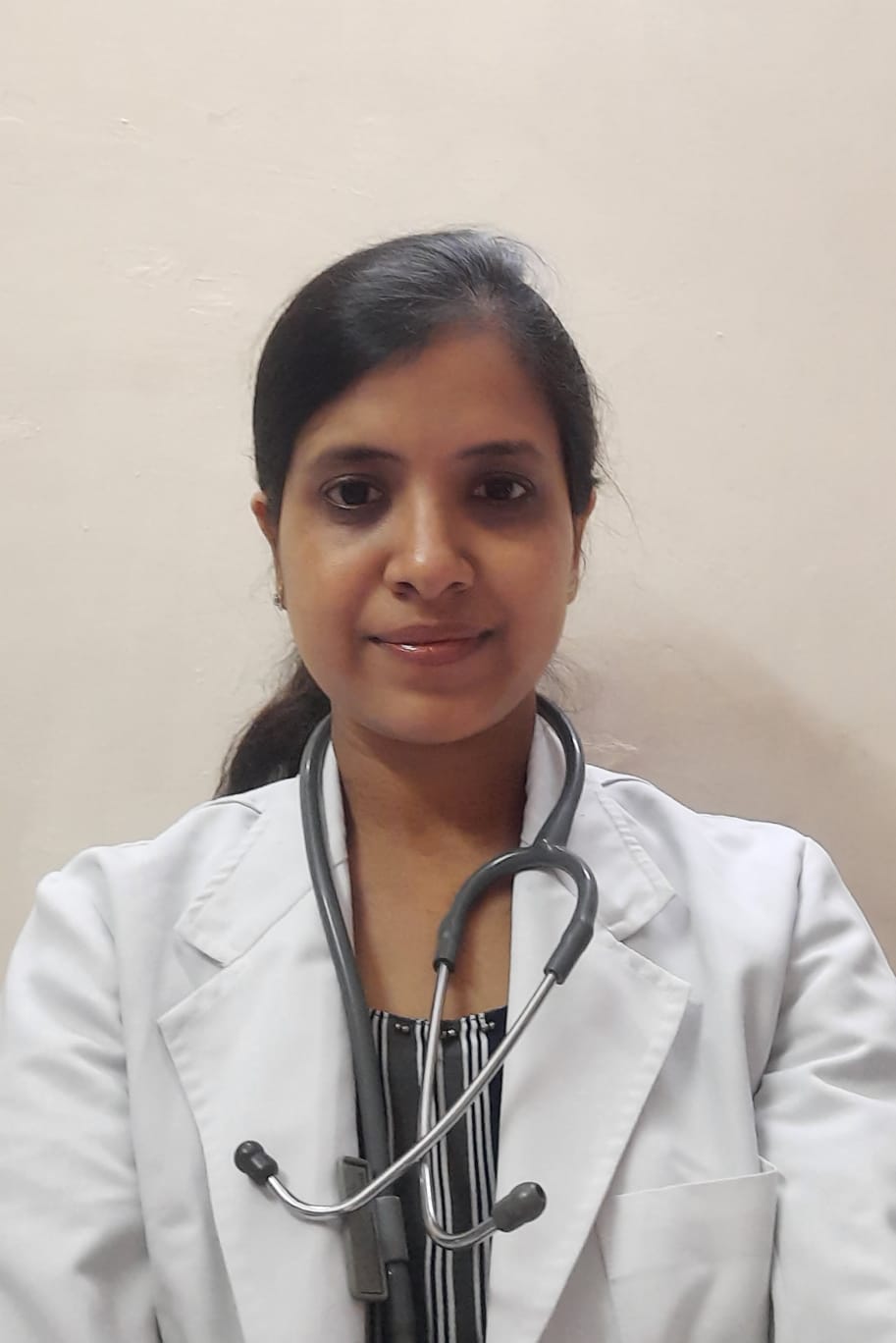Abnormal Menstrual Bleeding: Causes, Solutions, and When to Worry
Learn about abnormal menstrual bleeding—its causes, symptoms, diagnosis, and treatment options. Discover when to seek medical help and effective solutions.


Introduction
Every woman's menstrual cycle is as unique as she is, but sometimes, your period can send signals that something is off. Abnormal menstrual bleeding is one of the most common reasons women visit their gynaecologist, yet many suffer in silence, unsure if their experience is "normal." Whether it's soaking through a tampon and pad every hour, dealing with a period that lasts for weeks, or experiencing unexpected spotting, these changes can be disruptive and alarming. This article will demystify abnormal uterine bleeding, breaking down its potential causes—from hormonal fluctuations to underlying health conditions. More importantly, we will explore the practical solutions and treatments available to help you regain control. Remember, understanding your body is the first step toward taking charge of your health. If your menstrual bleeding is affecting your daily life, it's not something you just have to live with.
What Exactly is Abnormal Menstrual Bleeding?
Defining a "Normal" Menstrual Cycle
Before we define "abnormal," it's crucial to understand the range of normal. A typical menstrual cycle lasts between 21 and 35 days, with bleeding lasting from 2 to 7 days. The average blood loss is about 2-3 tablespoons (30-40 mL) per cycle. Of course, every woman is different, and what's normal for you might be your unique pattern. The key is noticing a significant change from your personal baseline.
Key Signs Your Bleeding is Abnormal
Abnormal menstrual bleeding, clinically known as abnormal uterine bleeding (AUB), encompasses a variety of patterns. You might be experiencing it if you have:
- Menorrhagia: Heavy menstrual bleeding that soaks through one or more sanitary pads or tampons every hour for several consecutive hours.
- Bleeding between periods or after sex.
- Periods lasting longer than seven days.
- Irregular menstrual cycles that vary by more than a week each month.
- Bleeding after menopause.
If any of these signs sound familiar, it's likely not just a "heavy period" but a medical symptom worth investigating.
Consult a Gynaecologist for the best advice
Common Causes of Abnormal Uterine Bleeding
The reasons behind abnormal bleeding are varied and can be broadly categorised.
Hormonal Imbalances (PCOS, Thyroid, Perimenopause)
This is one of the most frequent culprits. Your menstrual cycle is orchestrated by a delicate dance of estrogen and progesterone. When this balance is disrupted, it can lead to unpredictable bleeding.
- PCOS (Polycystic Ovary Syndrome): Causes irregular ovulation, leading to infrequent but often very heavy periods.
- Thyroid Disorders: Both an underactive (hypothyroidism) and overactive (hyperthyroidism) thyroid can cause prolonged menstrual bleeding or irregular cycles.
- Perimenopause: The years leading up to menopause are characterised by hormonal fluctuations that commonly cause unpredictable and sometimes heavy bleeding.
Structural Issues in the Uterus (Fibroids, Polyps, Adenomyosis)
Sometimes, the problem isn't hormonal but physical.
- Uterine Fibroids: These non-cancerous growths in the uterine wall are a leading cause of heavy menstrual bleeding and painful periods.
- Polyps: Small, benign growths on the uterine lining (endometrium) can cause bleeding between periods.
- Adenomyosis: A condition where the tissue that normally lines the uterus grows into the uterine muscle wall, causing severe pain and heavy bleeding.
Medical Conditions and Medications
- Bleeding Disorders: Conditions like von Willebrand disease can impair blood clotting.
- Pelvic Inflammatory Disease (PID): An infection of the reproductive organs.
- Medications: Blood thinners and certain anti-inflammatory drugs can increase bleeding. Similarly,
- irregularities can occur with IUDs (both hormonal and copper).
Pregnancy-Related Complications
Miscarriage and ectopic pregnancy often present with vaginal bleeding. Any bleeding during a confirmed or suspected pregnancy requires immediate medical evaluation.
How is Abnormal Bleeding Diagnosed?
The First Step: Talking to Your Doctor
Your journey to a solution begins with a detailed conversation. Keep a "period diary" for a few cycles, noting the start and end dates, flow heaviness (number of pads/tampons used), presence of clots, and any associated pain. This information is invaluable for your doctor. If symptoms persist beyond two weeks, consult a doctor online with Apollo24|7 for further evaluation to get started from the comfort of your home.
Common Diagnostic Tests and Procedures
To pinpoint the cause, your doctor may recommend:
- Blood Tests: To check for anaemia, thyroid function, hormone levels, and blood clotting issues. Apollo24|7 offers convenient home collection for tests like vitamin D or HbA1c, and similar services are often available for hormone panels.
- Pap Smear: To collect cells from your cervix for testing.
- Pelvic Ultrasound: This imaging test is crucial for looking for structural issues like fibroids or polyps.
- Endometrial Biopsy: A sample of your uterine lining is taken to test for abnormal cells or cancer, especially important for women over 45.
- Hysteroscopy: A thin, lighted scope is inserted through the cervix to view the inside of the uterus.
Get Your Health Assessed
Treatment Options: Finding the Right Solution for You
Treatment is highly personalised and depends entirely on the underlying cause, your age, and whether you wish to have children in the future.
Medications to Regulate Bleeding
- Hormonal Birth Control: Pills, patches, rings, or hormonal IUDs are often first-line treatments to regulate cycles and reduce bleeding.
- Tranexamic Acid: A non-hormonal medication that helps reduce blood loss by promoting clotting.
- NSAIDs: Ibuprofen can help reduce blood loss and alleviate menstrual cramps.
- Gonadotropin-releasing hormone (GnRH) agonists: These can temporarily shrink fibroids and control heavy bleeding.
Surgical and Procedural Interventions
- Endometrial Ablation: A procedure that destroys the uterine lining to significantly reduce or stop bleeding (not recommended for those who want future pregnancies).
- Uterine Artery Embolisation: A minimally invasive procedure to cut off blood supply to fibroids.
- Myomectomy: Surgical removal of fibroids while preserving the uterus.
- Hysterectomy: The surgical removal of the uterus, which is a permanent solution to stop periods and bleeding. This is typically a last resort.
Lifestyle and Holistic Management Strategies
While not a cure for underlying conditions, these can help manage symptoms:
- Iron-Rich Diet: To combat iron deficiency anaemia caused by heavy blood loss. Think leafy greens, red meat, lentils, and fortified cereals.
- Stress Management: High stress can disrupt hormonal balance. Yoga, meditation, and regular exercise can be beneficial.
- Maintaining a Healthy Weight: Excess weight can contribute to hormonal imbalances.
When to Seek Immediate Medical Attention
While it's always wise to discuss changes with your doctor, certain symptoms require urgent care:
- Soaking through one pad or tampon per hour for more than two hours.
- Bleeding accompanied by dizziness, lightheadedness, or fainting.
- Severe, acute pelvic pain.
- Any vaginal bleeding after menopause.
- Fever or signs of infection.
Conclusion
Navigating the complexities of abnormal menstrual bleeding can feel overwhelming, but it's important to remember that it is a treatable condition. From hormonal therapies to advanced surgical options, the range of solutions available today means you don't have to accept a diminished quality of life. The most critical step is to listen to your body and advocate for your health. That persistent feeling that something isn't right is often your best guide. By seeking a proper diagnosis, you can work with your healthcare provider to develop a targeted treatment plan that addresses the root cause, not just the symptoms. If your condition does not improve after trying over-the-counter methods, book a physical visit to a doctor with Apollo24|7 to begin your journey back to wellness. Your health and well-being are worth it.
Consult a Gynaecologist for the best advice
Consult a Gynaecologist for the best advice

Dr. Sreeparna Roy
Obstetrician and Gynaecologist
8 Years • MBBS , MS (OBSTETRICS & GYNAECOLOGY), Fellowship in Infertility, Endoscopy & Ultrasonography), Fellowship in Laparoscopy & Hysteroscopy,DRM
Kolkata
Dr Utsa Basu Clinic, Kolkata

Dr. Rituparna De
Obstetrician and Gynaecologist
7 Years • MBBS, MS (Obstetrics & Gynaecology)
Kolkata
MCR SUPER SPECIALITY POLY CLINIC & PATHOLOGY, Kolkata

Dr. Sreeparna Roy
Obstetrician and Gynaecologist
8 Years • MBBS , MS (OBSTETRICS & GYNAECOLOGY), Fellowship in Infertility, Endoscopy & Ultrasonography), Fellowship in Laparoscopy & Hysteroscopy,DRM
Barasat
Diab-Eat-Ease, Barasat

Dr. Sheetal Aggarwal
Obstetrician and Gynaecologist
17 Years • MBBS, MS (Obstetrics & Gynaecology)
Gurugram
Dr Sheetal's clinic, Gurugram

Dr. Sanjan Das
Obstetrician and Gynaecologist
15 Years • MBBS,MS
Bengaluru
Apollo Clinic, Sarjapur Road, Bengaluru
Consult a Gynaecologist for the best advice

Dr. Sreeparna Roy
Obstetrician and Gynaecologist
8 Years • MBBS , MS (OBSTETRICS & GYNAECOLOGY), Fellowship in Infertility, Endoscopy & Ultrasonography), Fellowship in Laparoscopy & Hysteroscopy,DRM
Kolkata
Dr Utsa Basu Clinic, Kolkata

Dr. Rituparna De
Obstetrician and Gynaecologist
7 Years • MBBS, MS (Obstetrics & Gynaecology)
Kolkata
MCR SUPER SPECIALITY POLY CLINIC & PATHOLOGY, Kolkata

Dr. Sreeparna Roy
Obstetrician and Gynaecologist
8 Years • MBBS , MS (OBSTETRICS & GYNAECOLOGY), Fellowship in Infertility, Endoscopy & Ultrasonography), Fellowship in Laparoscopy & Hysteroscopy,DRM
Barasat
Diab-Eat-Ease, Barasat

Dr. Sheetal Aggarwal
Obstetrician and Gynaecologist
17 Years • MBBS, MS (Obstetrics & Gynaecology)
Gurugram
Dr Sheetal's clinic, Gurugram

Dr. Sanjan Das
Obstetrician and Gynaecologist
15 Years • MBBS,MS
Bengaluru
Apollo Clinic, Sarjapur Road, Bengaluru
More articles from Menstrual Disorder
Frequently Asked Questions
Can stress really cause abnormal menstrual bleeding?
Yes, high levels of physical or emotional stress can disrupt the hypothalamic-pituitary-ovarian axis, the system that regulates your hormones. This can lead to delayed ovulation, missed periods, or unexpected spotting.
What is the difference between menorrhagia and metrorrhagia?
Menorrhagia refers to abnormally heavy or prolonged bleeding during your regular menstrual period. Metrorrhagia refers to irregular bleeding that occurs between your expected menstrual periods.
Are there any natural remedies for heavy menstrual bleeding?
Some studies suggest that supplements like vitamin C (to strengthen capillaries) and iron (to combat anaemia) may help. Anti-inflammatory foods and herbs like ginger and turmeric might reduce cramping. However, these should complement, not replace, a medical evaluation, especially for severe treatment for menorrhagia.
Can losing weight help regulate heavy periods caused by PCOS?
Absolutely. For women with PCOS who are overweight, even a modest weight loss of 5-10% can help restore ovulation and lead to more regular, less heavy periods by improving insulin sensitivity and balancing hormones.
Is abnormal bleeding always a sign of cancer?
No, in the vast majority of cases, abnormal bleeding is caused by benign (non-cancerous) conditions like fibroids, polyps, or hormonal issues. However, because endometrial cancer can present this way, it's a reason why persistent abnormal bleeding, especially after age 40, must be evaluated by a doctor to rule out serious causes.






